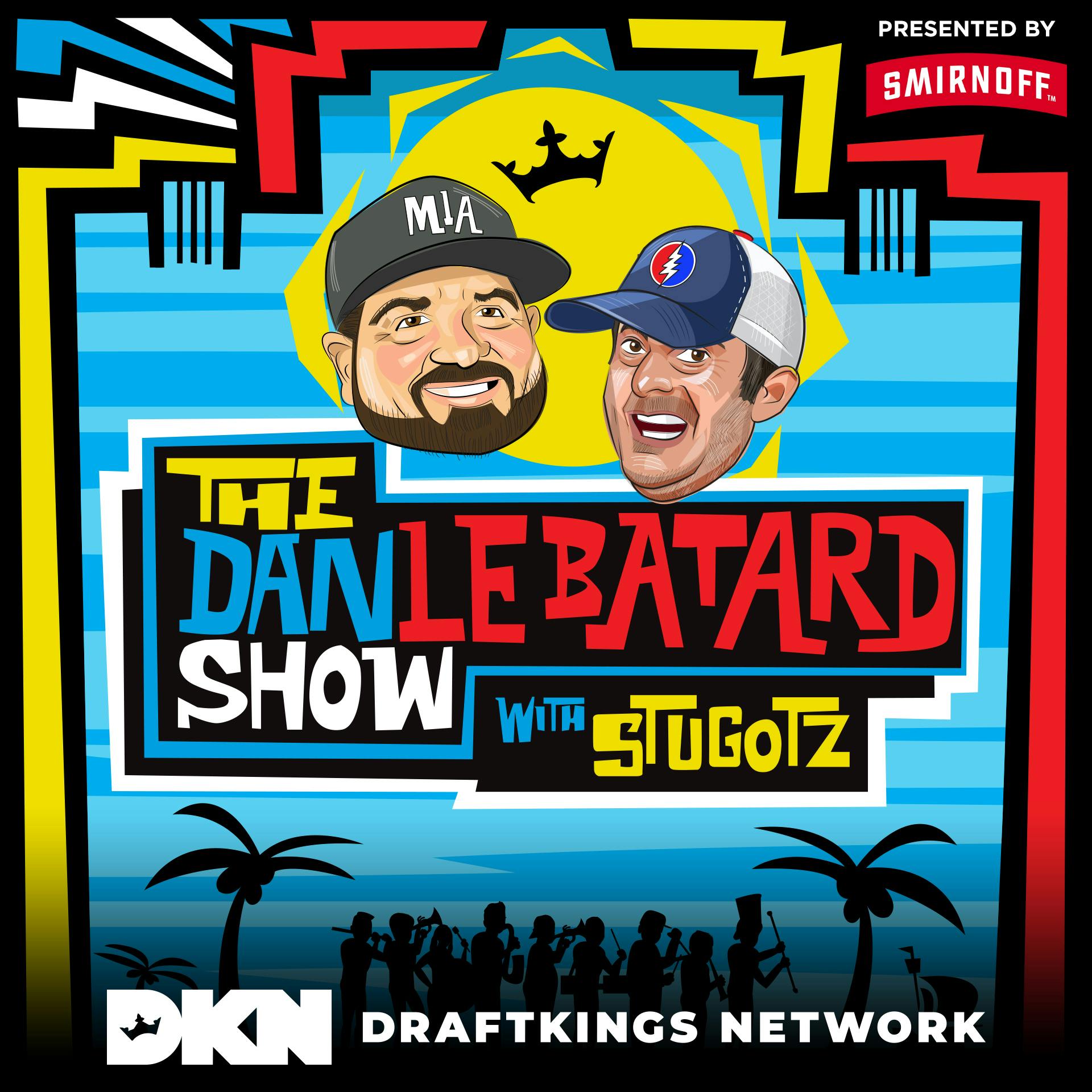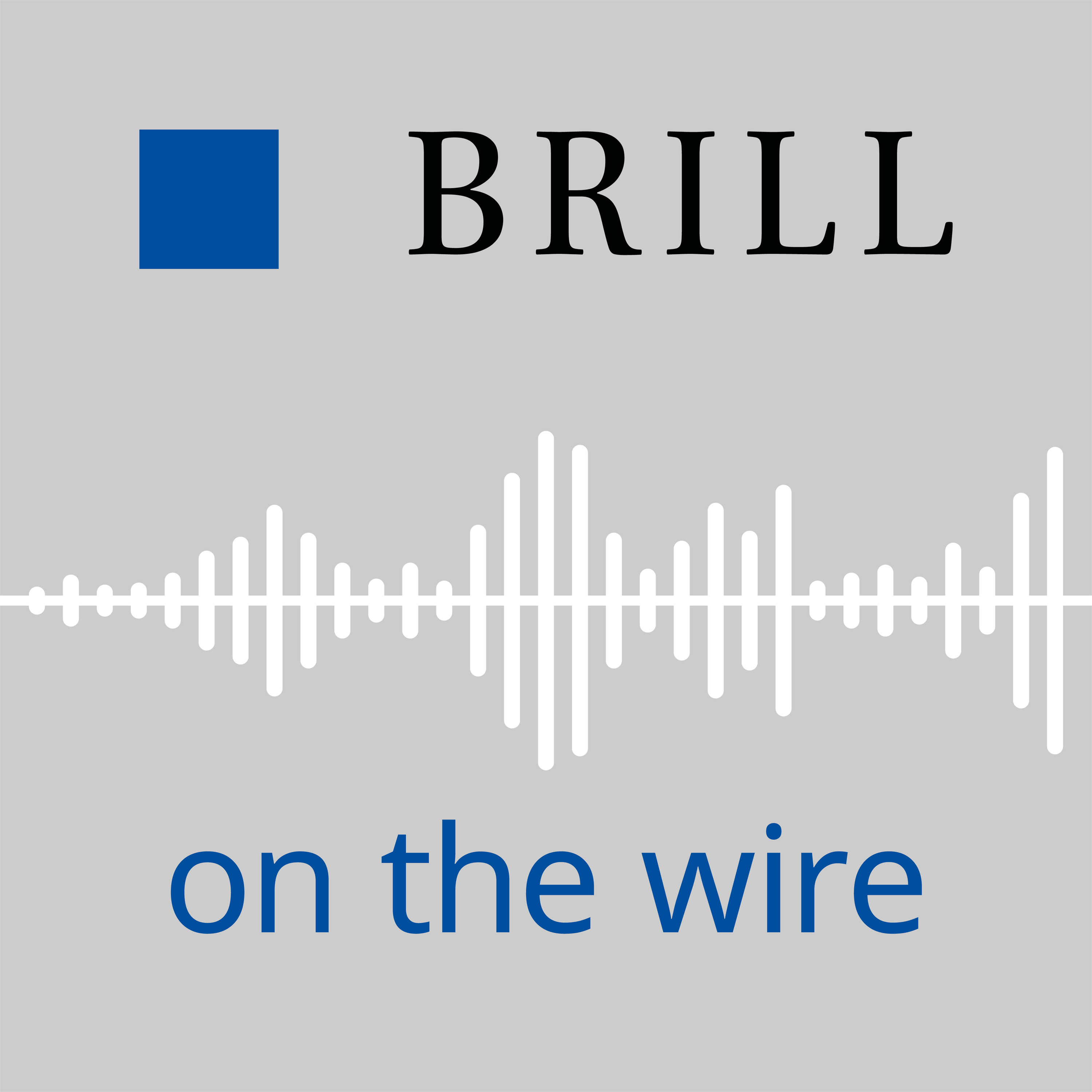AI Summary
In this episode, the hosts explore a range of topics, including Dan's role in a controversial interview with Tua Tagovailoa and the audition process for the Miami Heat's cheerleading squad. They bring humor into discussions about conformity in auditions and reflect on Greg's preparation for a dance audition with the Golden Oldies. A significant focus is placed on the doping scandal involving tennis player Jannik Sinner, dissecting the fairness of allegations based on minimal steroid levels found in his system. They conclude with a reflection on the media's role in perpetuating narratives about Tua Tagovailoa and coach Brian Flores while examining the state of the Miami Hurricanes football team.
The episode discusses Greg's apprehensions about auditioning for the Golden Oldies team, focusing on the need for prior approval from the Miami Heat and the surrounding media dynamics. The conversation highlights dance marathon traditions and the competitive nature of the audition, along with the political aspects of connecting with judges. Additionally, there is introspection on Greg's dance skills and his fear of embarrassment during the audition.
The discussion revolves around the ramifications of Dan becoming a pawn in the Tua Tagovailoa interview, while humorously teasing Greg's audition attempts. Insights from sports commentary highlight misunderstandings and reactions, alongside a retrospective commentary by Billy addressing past controversies. The episode blends sports news with light-hearted banter, demonstrating the show's character dynamic.
Discussion centers around the misinterpretation of statements and the need for clear context in sports discussions. It highlights Jannik Sinner's doping controversy, where he tested positive for a banned substance but claims unintentional exposure. The conversation raises questions about athlete accountability and double standards in sports, emphasizing the necessity for transparency and integrity among professional players.
The episode discusses the controversy surrounding Jannik Sinner's positive doping test, highlighting the trainer's unintentional involvement and the potential for “tainted meat” excuses. Reactions from players such as Nick Kyrgios criticize perceived double standards in the sport's handling of doping cases. The episode unpacks how public knowledge of the incident has raised conspiracy theories about the timing and implications for Sinner's status as a rising star in tennis.
- more AI-processed summary -
Takeaways
The episode highlights the interplay between sports media personalities and their relationships with sports teams, as illustrated by Dan's role in Tua's interview and the audition for the Golden Oldies.
Humor plays a vital role in the discussions, allowing hosts to navigate potentially sensitive topics while fostering a light-hearted atmosphere.
The discussion intertwines sports and personal life, emphasizing the comedy in everyday family interactions, especially during significant timeframes like the holiday season.
Yannick Sinner's doping scandal highlights the complexities of drug testing in sports, including the debate over threshold levels and accidental ingestion of banned substances.
The discussion critiques the media's role in amplifying narratives surrounding player-coach relationships, urging for a shift towards focusing on the current sports season.
- more AI-processed takeaways -
Topics
Sports Media Dynamics
Sports media dynamics involve the relationships between media personalities and the sports figures or teams they cover. This segment reveals how Dan's involvement in Tua Tagovailoa's interview influences perceptions in the sports community.
Humor in Sports Commentary
Humor in sports commentary enhances engagement and relatability, as demonstrated by the hosts' playful exchanges regarding the auditions and athletic endeavors.
Doping in Sports
Doping in sports refers to the use of banned substances to enhance performance, an issue that leads to significant controversies. The Sinner case underscores the complexities in drug testing, regulations, and the ethical implications of substance use.
Media Representation
Media representation involves how individuals and events are depicted in journalism, often influencing public perception. The episode highlights the pitfalls of inaccurate framing, particularly in high-stakes interviews.
Fan Culture and Community
Fan culture encompasses the passion and allegiance that individuals express towards their sports teams. Amin's discussion reflects the joy and camaraderie found in supporting college teams like the Georgia Tech Yellow Jackets.
Holiday Celebrations
Holiday celebrations encompass a variety of cultural and familial practices during festive seasons, promoting joy and connection among family members and friends.
Player Impact
Player impact discusses how individual athletes can shape the success of a team. In this segment, Cam Ward represents the potential for a player to change the dynamics of a game based on their skills and experience.
Communication in Sports Teams
Communication in sports teams is vital for ensuring that all members, including athletes and trainers, are aligned on health practices and regulations.
Athlete Accountability
Athlete accountability examines the responsibilities athletes bear regarding their actions and choices. The episode discusses the ethical dimensions of doping and the standards athletes are held to.
Performance Under Pressure
Performance under pressure studies how athletes cope with expectations during crucial games. Miami's challenges highlight the psychological factors that influence outcomes, particularly in high-stakes situations where every mistake can shift momentum.
- more AI-processed topics -
Related Episodes

 Hour 1: Worst Mistake and Raheem Mostert
Hour 1: Worst Mistake and Raheem MostertHosts Dan Le Batard and Stugotz engage in humorous discussions about the 'Worst Mistake' category, sharing personal anecdotes and lighthearted exchanges regarding various nominees. The episode features an interview with Raheem Mostert, who reflects on his experiences as a Dolphins player, including his dedication to the Florida Panthers, challenges in the running back market, and his relationship with teammate Tua Tagovailoa. The hosts also share everyday humorous moments, including dealing with hiccups and grocery store frustrations, emphasizing their comedic dynamics throughout.
- Raheem Mostert's participation in the Florida Panthers' Stanley Cup parade exemplifies the joy of sports culture and fandom, while his reflections highlight the interconnectedness of personal passion and community events.
- Despite the setbacks in his career, Mostert conveys a sense of resilience and determination, demonstrating the importance of seizing opportunities as they arise.

 The Big Suey: We're All Pawns
The Big Suey: We're All PawnsIn this episode, the hosts explore a range of topics, including Dan's role in a controversial interview with Tua Tagovailoa and the audition process for the Miami Heat's cheerleading squad. They bring humor into discussions about conformity in auditions and reflect on Greg's preparation for a dance audition with the Golden Oldies. A significant focus is placed on the doping scandal involving tennis player Jannik Sinner, dissecting the fairness of allegations based on minimal steroid levels found in his system. They conclude with a reflection on the media's role in perpetuating narratives about Tua Tagovailoa and coach Brian Flores while examining the state of the Miami Hurricanes football team.
- The episode highlights the interplay between sports media personalities and their relationships with sports teams, as illustrated by Dan's role in Tua's interview and the audition for the Golden Oldies.
- Humor plays a vital role in the discussions, allowing hosts to navigate potentially sensitive topics while fostering a light-hearted atmosphere.

 The Big Suey: Who Is Sal Licata?
The Big Suey: Who Is Sal Licata? The episode delves into the complexities surrounding Tua Tagovailoa's contract with the Miami Dolphins, emphasizing the varying views on his value and the implications of management support on his mental health and recovery. Additionally, highlights include a list of Top 5 Viral Sports Videos that spark debate around authenticity, alongside Stugotz's humorous interactions with the WFAN crew. The overarching discussion tackles themes of respect and recognition within professional settings, particularly through player comparisons and broader media influences.
- **The complexity of contract negotiations in the NFL, especially regarding Tua Tagovailoa, highlights the need for timely decision-making by teams to avoid losing value.**
- **Tua Tagovailoa's mental health and the substantial support from management are critical factors for his success, highlighting the nuanced dynamics in player-coach relationships within professional sports.**

 A Bad QB Draft, Josh Wins Multi-view MVP, Philly’s the NFC Shot Caller, and Guess the Lines with Cousin Sal
A Bad QB Draft, Josh Wins Multi-view MVP, Philly’s the NFC Shot Caller, and Guess the Lines with Cousin SalThe episode delves into the disappointing performances of quarterbacks during NFL Week 15, highlighting figures like Tua Tagovailoa and Mac Jones, who struggled under pressure. Hosts Bill Simmons and Cousin Sal analyze the impact of these performances on team dynamics and the playoff picture, emphasizing ongoing coaching issues. Recent games like Jaguars vs. Jets and Buccaneers vs. Chargers also receive attention, with a critical view of strategic decisions made during those matchups. The episode culminates with betting line predictions for NFL Week 16, integrating humor with insights into personal and family matters.
- **The quality of quarterback play significantly influences not only game enjoyment but also betting outcomes, as evidenced by the lackluster performances during NFL Week 15.**
- **Todd McShay's insights on NFL draft dynamics suggest how player movements can shape team standings, emphasizing the importance of such discussions in understanding the league.**

The misunderstood role of INGO | Dr. SP Kalaunee, BlinkNow Foundation-Country Representative | Ep234Welcome to The Doers Nepal Podcast – Nepal's No.1 Business Podcast, where we explore the stories of leaders who are shaping industries and driving positive change.
In this episode, we sit down with SP Kalaunee, Chairperson of the Association of International NGOs in Nepal, to discuss the funding challenges INGOs face. We dive deep into where INGOs get their funds, why long-term sustainability is difficult, and the social justification issues these organizations encounter. SP shares valuable insights on navigating these challenges while maintaining impactful operations.
Tune in to learn about the complexities behind INGO funding and how these organizations strive for long-term success in Nepal and beyond.
Get Inspired, Be a Doer.

The Language of Thread - Why Sewing Matters and How It Was TaughtSewing is one of the most vital but also one of the most overlooked human crafts. Every piece of clothing we wear has been put together by someone who has learned to sew. Millions of people sew for pleasure and millions more earn their living in the textile and clothing industries – often in underpaid and unprotected jobs. The craft of using a needle has been one of humanity’s greatest skills, ever since this tiny piece of technology came into use around 60,000 years ago. It is something that unites us all as human beings, regardless of ethnicity, religion or geography. For most of time, sewing as a skill was passed from generation to generation. But, in the last few hundred years, as textiles and thread have been produced in abundance, how we learned to sew became a political matter. Governments, churches, politicians, and corporations all had a view on the morality and the methods necessary to turn out the ideal needlewoman. This episode of Haptic & Hue tells the little-known story of how two separate sewing schools on different sides of the Atlantic gave women all over the world a new life of economic independence, social status and personal power. One of these education programmes took the Singer sewing machine into every corner of the globe. The other, a ground-breaking teacher training college in London, had an impact on the lives of millions of girls all over the world. For more information, a full transcript and further links, https://hapticandhue.com/tales-of-textiles-series-5/

Yiddish in EuropeYiddish is part of the family of Germanic languages with influences of Hebrew and Aramaic and encompasses many dialects spoken in several parts of Europe. This renders a diversity to the language, the development of which merits exploration through a close scrutiny of its history.
In this new episode, Dr. Bart Wallet, Professor of Jewish History at the Universiteit van Amsterdam, and Dr. Laura Almagor, Lecturer in Twentieth Century European History at the University of Sheffield, discuss the diversity in Yiddish language, its origins, and challenges, based on the recently published collection of articles titled “Yiddish in Europe” in the European Journal of Jewish Studies.
The authors argue the merits of delving deeper into the intricacies of the Yiddish language as an integral part of Jewish studies and bringing it to the public eye.

Ruth Panofsky on Writing Women back into Publishing HistoryRuth Panofsky is Professor of English at Ryerson University in Toronto. She is a leading scholar of the history of publishing and authorship in Canada and Canadian Jewish literature, an award-winning poet and a Fellow of the Royal Society. We met via Zoom to discuss her most recent book Toronto Trailblazers: Women in Canadian Publishing (2019, U of T Press) which explores the influence of seven women who helped advance a modern literary culture in Canada. "Publisher Irene Clarke, scholarly editors Eleanor Harman and Francess Halpenny, trade editors Sybil Hutchinson, Claire Pratt, and Anna Porter, and literary agent Bella Pomer made the most of their vocational prospects, first by securing their respective positions and then by refining their professional methods. Individually, each woman asserted her agency by adapting orthodox ways of working within Canadian publishing. Collectively, their overarching approach emerged as a feminist practice. Through their vision and method these trailblazing women disrupted the dominant masculine paradigm and helped transform publishing practice in Canada." We talk about writing these women back into the history of Canadian publishing, and end off with a look at the challenges that face Canada's current book publishing industry.

Janet Friskney on The New Canadian Library: The Ross-McClelland Years, 1952-1978A specialist in Canadian publishing history, Janet B. Friskney, is the author of New Canadian Library: The Ross-McClelland Years, 1952-1978 (published by the University of Toronto Press). Her publication credits include articles on the Methodist Book and Publishing House of Toronto, nineteenth-century Bible and tract society activity in Canada, and the history of publishing for the blind in Canada. She served as Associate Editor to Volume 3 of the History of the Book in Canada, and edited and introduced Thirty Years of Storytelling: Selected Short Fiction by Ethelwyn Wetherald. We met at Carleton University to discuss the history and evolution of McClelland & Stewart's New Canadian Library (NCL) reprint series. Topics covered include the relationship between Jack McClelland and Malcolm Ross, selection criteria, the commerce of publishing a reprint series, teaching Canadian novels in Canadian universities, the ambivalent nature of introductions used to accompany some NCL titles, book designer Frank Newfeld, Canada's literary heritage, and the current status of the NCL.










